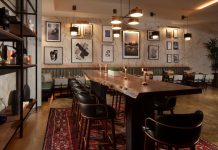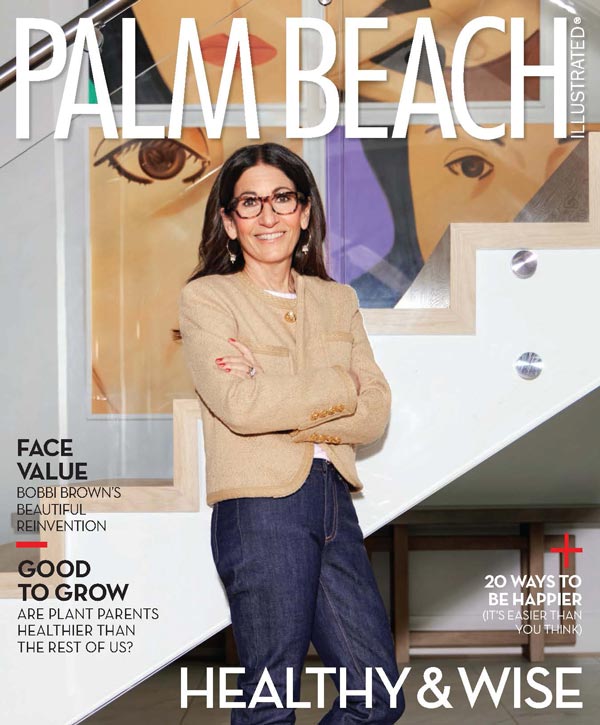With a whoosh of flame, our hot-air balloon rises above the rooftops of the Castello di Casole boutique resort and private residence club. Within the vast view of the rolling Tuscan landscape, the beauty of the golden-hued castle on the highest hilltop dominates the scene. Other elements we spy on our tour (arranged by the resort) that juxtapose old with new are the infinity pool in its garden setting, perfect rows of grapevines and farmhouses dotting the estate, where 200 years ago the occupants tilled the soil. The farmhouses have been lavishly renovated and purchased by members of the Timber Resorts Residence Club, which owns the estate. The private homes are available for rentals.

At the heart of the five-star Tuscan resort is the castle itself, with roots dating back to the year 998. Among the castle’s interesting inhabitants during its thousand-year history was aristocratic film director Luchino Visconti (1969’s The Damned and 1971’s Death in Venice), who owned what is now the main hotel villa of the castle compound in the 1960s. In those days, Visconti hosted a glittering array of Hollywood royalty, including Sophia Loren and Elizabeth Taylor.

When Colorado-based Timbers Resorts bought it in 2005, the intent, according to CEO David Burden, was “to bring a piece of history alive.” Although only one tower remains of the original tenth-century castle, old stones, terracotta tiles and reclaimed wood have been used in the recent restoration.
The renovated 4,200-acre property opened last year with 41 suites in the manor house and 28 villas created from the farmhouse ruins. These are restored and finished in Tuscan style with luxurious modern amenities. “We combined the new with the old,” says Timbers Resorts Design Manager Alison Moore. “The bathrooms use a modern Italian approach with a lot of glass and mosaics. They’re really sensational.”

The Castello is a boutique hotel with terraces, a pool, a fitness center and a spa inspired by the region’s fragrances and natural approach to diet and exercise. Among the most popular accommodations are in the Oliveto Suites, located in new buildings among lush grapevines and olive trees. Distinctly nonrustic, they are contemporary and stylish, but “guests feel the life of the farm, of the vineyards,” says Silvia Anichini, villa operations manager.
Another vineyard element can be found under the vaulted ceilings of the old wine caves, which house the 5,400-square-foot Essere Spa. A favorite treatment is the Sacred Nature Ritual, 110 minutes of pure indulgence using olive oil infused with orange and cinnamon from the groves on the estate.

When not in the mood for relaxing, guests find many activities to enjoy. They can take authentic cooking, art and language classes; attend outdoor concerts; tour vineyards; and bike, hike, walk and ride horseback on the extensive trail network. Sportsmen and women can hunt cinghiale, wild boar, with game wardens leading the hunt. If hunting truffles is more your style, in season locals and visitors follow guides under oaks and poplars in search of the elusive mushroom.
For the cooks among us, kitchens in private villas are dream creations rendered in ochre and slate, vintage antiques, marble sinks and the latest pasta makers and chef’s ovens. Hand-painted Gianfranco Ballerini refrigerators can be stocked in advance by the staff.

In Tuscany, of course, food is front and center. Sublime flavor is the mission within Chef Daniele Sera’s fine dining restaurant, Tosca. Under Murano glass chandeliers surrounded by restored stone walls, dine on the chef’s inspired creations, including mackerel and clams with organic lemons, risotto with saffron and braised veal shank and mille-feuille with wild strawberries. More casual dining is equally delicious at Pazzia, where homemade pastas, gelati and espresso are overshadowed only by the hand-tossed pizza. During the day, excursions can be arranged to San Gimignano and Monteriggioni, known for their Renaissance towers. And a guided trip to Florence may include not only the renowned museums but access to exclusive boutiques producing one-of-a-kind items as well. Winery tours in the area are a must, as Tuscany is home to the Sangiovese grape, used in producing Brunello di Montalcino, Vino Nobile di Montepulciano, Vernaccia di San Gimignano and Super Tuscans.
During the day, excursions can be arranged to San Gimignano and Monteriggioni, known for their Renaissance towers. And a guided trip to Florence may include not only the renowned museums but access to exclusive boutiques producing one-of-a-kind items as well. Winery tours in the area are a must, as Tuscany is home to the Sangiovese grape, used in producing Brunello di Montalcino, Vino Nobile di Montepulciano, Vernaccia di San Gimignano and Super Tuscans.
Bar Visconti, named for the movie director, is the spot for a convivial and sophisticated evening. The bar overlooks the dining terrace and pool area and features a wall fresco by a Tuscan artist. The atmosphere was designed to recall those lively parties Count Visconti was famous for hosting.
A millennium in the making, Castello di Casole captures the heart and soul of Tuscany and combines it with the best modern comfort.









Facebook Comments